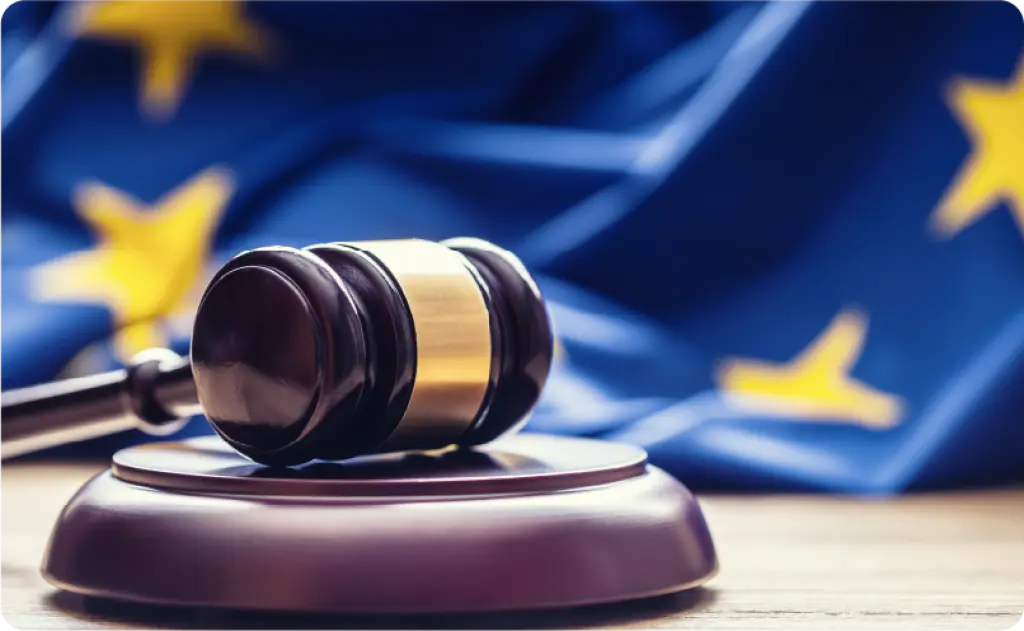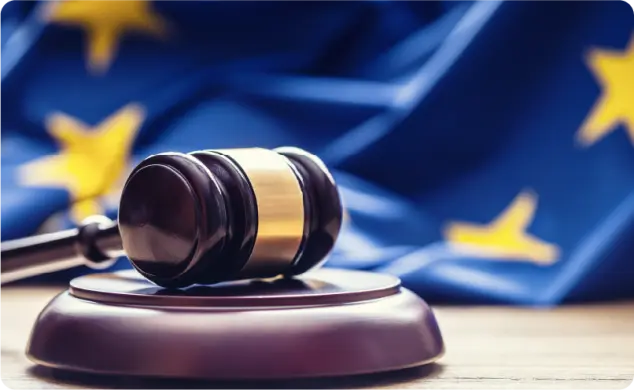Thirteenth sanctions package against Russia.
- Thu, March 07, 2024
- 1.5 Minuten Lesezeit

Additions to sanctions list
The latest additions to the sanctions list include:
- Companies within the Russian military-industrial complex;
- Individuals and companies involved in Russian cyber warfare;
- Individuals and companies involved in arms supplies to Russia from North Korea;
- Individuals and organisations in Russia, Belarus and the occupied Ukrainian territories involved in the abductions of Ukrainian children.
If sanctioned individuals or companies have funds or assets in EU countries, they will be frozen and EU citizens and companies are not allowed to provide them with funds.
Export restrictions
Additional measures have also been taken against the circumvention of sanctions. Export restrictions have been imposed on companies involved in circumventing sanctions. These include export restrictions on dual-use goods and technologies.
There are also new restrictions in the EU on the export of goods that can contribute to the Russian military industry, such as electrical transformers.
Sanctions overview
A full overview and timeline of all sanctions imposed against Russia by the European Union can be found on the European Council's sanctions page.
Why sanctions
Sanctions are a powerful tool used by organisations such as the European Union to protect global peace, security, human rights, international law, democracy and the rule of law. These measures are not taken lightly; they serve as a response to threats to international peace and security.
The sanctions against Russia were imposed by the EU in response to its invasion of Ukraine on 24 February 2022. The sanctions make it more difficult for Russia to fund and thus continue the war.
Compliance risks for companies
As a company, you need to pay close attention to who you supply goods to when sanctions are imposed against certain countries. You not only have the task of ensuring that your company does not trade directly with sanctioned countries and/or companies, but also that you do not inadvertently become involved through other parties. This means there are compliance risks involved.
If sanctions rules are breached, not only can you face hefty fines, but also criminal prosecution. This applies not only to the selling party, but also to all parties involved in the delivery, transport and possibly in the preparation of customs documents. It is therefore important to ensure that you are compliant with the sanctions.
Advice and support
We understand that this information may raise questions for you regarding your company's trade. Our Consultancy & Advisory services can help align your business operations with regulatory compliance. Please contact advisors.nl@gaston-schul.com for advice and support.
Verwandte Nachrichten und Artikel
Erhalten Sie unsere Expertenmeinungen und Zollinformationen direkt in Ihren Posteingang
Mit Ihrer Anmeldung erklären Sie sich damit einverstanden, dass Gaston Schul Sie über unsere relevanten Inhalte, Produkte und Veranstaltungen informiert. Sie können sich jederzeit abmelden. Weitere Informationen finden Sie in unserer Datenschutzrichtlinie.




